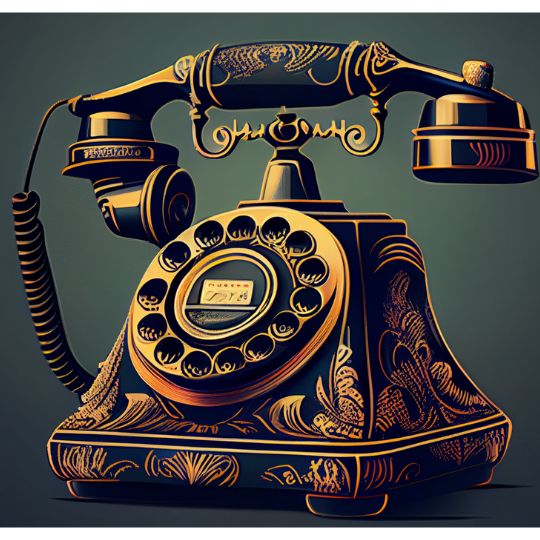Many of us want to start a business nowadays, but coming up with a winning idea is not that simple. Many of the ideas we have have probably been thought of by someone else before, or even worse, if nobody has thought of it, is there really a market interested in this product or service?
There are many questions that arise when conceiving an idea for a digital business. Therefore, it is vital to validate it before investing large amounts of money and time into an idea when you are not yet certain if the outcome will be as expected.
Here we will talk about 9 entrepreneurial ventures that were validated in the market before being launched.
1. Drip, an email marketing tool.
"I wanted to find 10 people who were willing to pay a specific amount for the product once it was complete. This forced me not to think about the features, but to summarize the idea in its core value, the unique reason why someone would be willing to pay me for the product. I took it and emailed 17 people I knew, or at least had heard of, who may have shared the same pain. This way, not only did I have my initial customers who could give me feedback on the details of how Drip should work, but I also had the beginning of an early revenue base that I could use to start growing the product." Rob Walling
2. Flashnotes.com, a tool that offers a marketplace for study guides and class notes.
"The idea for Flashnotes.com came about when I was a junior at Kent State University. I started creating these detailed study guides for our exams and sold my final exam study guides for $10 a piece. Not only did they sell, but I was literally hunted down on campus for more and more by my fellow classmates, easily making over $1,000. After this initial interest, I knew I was onto something, and my friends tested the idea of selling study material in their own classes." Mike Matousek
3. CheckMaid.com, a tool that manages an on-demand cleaning service online.
"We really validated [the idea] without having cleaners to do the cleanings. We created a website, a booking form, a phone number, and ran some [pay-per-click] ads through Google and Bing, and we saw what the conversion rate would be if we actually had cleaners." Alex Brola
4. Tailwind, a Pinterest analytics tool.
"We validated our first (failed) product by having friends and family tell us how wonderful it was. It felt great, but they didn't use it. When we started Tailwind, we took a different approach: asking complete strangers who didn't care about us at all if they would be willing to sign up and pay before our product was built. We opened up a sign-up page, bought some AdWords traffic, and people started signing up and paying. That's when we knew we were onto something." Danny Maloney
5. Senor Sangria, a manufacturer of ready-to-serve bottled sangria.
"To validate, I made some of my homemade sangria and took it to a few retailers and asked if they would buy a bottled sangria that tasted like this. Every single one of them said that if I could bottle it, they would. They all seemed to really enjoy my sangria but didn't believe I could do it on a commercial scale.
The second level of validation was running the numbers. I created a fairly complex spreadsheet that I still use today. This spreadsheet allowed me to understand how much money I would need to commit to this business and how much product I would have to sell. It forced me to ask A LOT of questions to people in the alcohol industry. These two steps were all the validation I needed to move on to the next step." Rick Martinez
6. OpenBay, a tool that helps users discover local automotive repair services.
"I owe much of the validation process to Steve Blank," who was an advocate for getting out of the office. "After formulating the idea for this online marketplace, I got out of the building and talked to potential users of the service. The idea needed validation from real users. Since I was planning on building a two-sided marketplace, I had to talk to both vehicle owners and automotive service providers, who consistently provided valuable feedback on their challenges, needs, and what they would want to see. I built a functional prototype and shared it with the same groups with updates along the way. This took months of work. Before I knew it, I had validated my idea, and the development of a real product was about to begin." Rob Infantino
7. Bizness Apps, a provider of DIY mobile apps for small businesses.
"We validated the idea by starting to chase customers as soon as we had our initial product up and running. We believed that if we could sell it to local businesses in the area, we could sell it to any small business. Getting our first customers to pay for the product was extremely valuable and really gave us the idea that we could be onto something big." Andrew Gazdecki
8. Net Irrigate, a manufacturer of a wireless irrigation monitoring system.
"The original product concepts for Net Irrigate were validated by selling the product before it was actually built. I simply asked potential customers, 'Would you pay for something like this if it works, and how much would you be willing to pay?' It turned out that in the farming community, there were many people willing to try and experiment with new technologies, as long as they didn't have to pay for them until they met their expectations. I learned that it is crucial to understand their perspective and the value they derive from the product, not my own. Essentially, it didn't matter what I thought was great." Edward DeSalle
9. Hipzbag, a manufacturer of a functional waist-worn accessory.
"I didn't get much validation about the product for quite some time. When I showed it to my friends, they simply said it wasn't for them. My mom, of course, loved it! So it was just her and me using the Hip zbag for the first 6 months. After the Hipzbag went out into the world, I encountered representatives who 'got' the concept instantly and wanted to pitch it to QVC. The Hipzbag was immediately accepted by the QVC buyer in 2010. They sold out on the first show! It was instant VALIDATION, and our product has been a sales success and customer favorite ever since." Kathy Crifasi.
These examples are part of a very extensive list of entrepreneurs who preferred to validate their business idea in the market before making a significant investment, and it brought them good results.




.png?width=420&name=Cromac%20(6).png)



